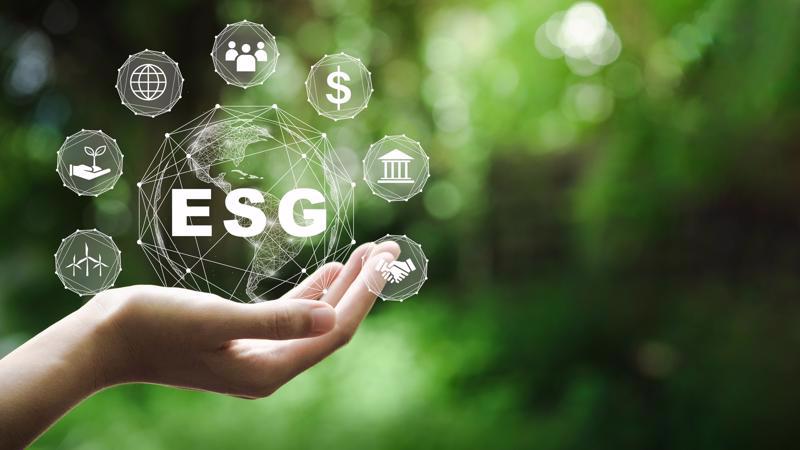Analysts view worsening climate change, energy crises, and geopolitical and economic conflicts as raising myriad problems for sustainable development in the world’s economies. In response to such threats, growing numbers of major markets have set sustainable standards for commodities that require enterprises strictly comply with ESG (environmental, social, governance) criteria.
Pressure on businesses
From 2016 to 2021, the number of policies relating to ESG introduced throughout the Asia-Pacific region doubled, excluding other regulations on green standards for commodities set by developing countries, according to Ms. Pham Thi Ngoc Thuy, Managing Director of the Private Economic Development Research Division (Division IV) Office under the Prime Minister’s Administrative Procedure Reform Council.
Vietnam has set targets of becoming a high-income country by 2045 while reaching net-zero emissions by 2050. In order to fulfill both, however, Vietnamese enterprises must overcome a host of challenges resulting from their and the country’s low starting point and natural resource-dependent economy. Enterprises’ internal strength is also limited to some extent, and exports - a major growth driver - face many issues. Sustainable development is therefore necessary but also burdensome.
Ms. Thuy said there are three issues putting pressure on businesses. Firstly, technical barriers have increased as exports enter major markets. In the EU, for example, the Carbon Border Adjustment Mechanism (CBAM) has taken effect, with many Vietnamese products exported to the bloc that record a high rate of emissions being required to have detailed accompanying reports. In nearly three years, a carbon tax will be applied within the CBAM framework, meaning that Vietnamese exporters will face the same responsibility as producers in the EU.
“If we do not lower emissions, we will have to pay huge taxes,” she explained. “Steel exported to the EU will be the first sector affected by the CBAM. The EU is planning a tax rate of $82-85 per ton of carbon dioxide discharged into the environment. One ton of steel may therefore be subjected to over $100 in taxes.”
Secondly, the European Union Deforestation-free Regulation (EUDR) will also have a severe impact on major Vietnamese export items such as wood, rubber, and coffee. Meanwhile, the draft Clean Competition Act in the US - Vietnam’s biggest export market - will affect even more products and businesses than the EU’s CBAM if it takes effect, which will happen immediately without trial if approval is forthcoming. In addition, importers in Japan and South Korea - also two key export markets for Vietnam - now pay greater attention to sustainability and ESG practices in production.
Even in Vietnam, local businesses are now required to comply with new policies and regulations. Ms. Thuy noted the government’s commitment and action in sustainable development and green transition, which include its net-zero emissions target by 2050; a national strategy on green growth; a national strategy on climate change; greenhouse gas emission reductions plans; moves to bring an end to deforestation by 2030; a draft decree on environmental protection fees for emissions; and a draft decision on promulgating environmental criteria and providing certification of projects eligible for the granting of green credit and the issuance of green bonds.
Thirdly, Vietnamese enterprises have continually experienced pressure from foreign partners introducing green transition mechanisms in their supply chains in response to policy pressure in their home countries.
Green transition a growth driver
According to Ms. Thuy, though the pressure is huge, there are many benefits for businesses following a path towards green transition. They can optimize production costs by saving energy, water resources, and input materials, cut operational outlays, optimize supply chains, and recognize sectors with potential in ecological products. Compliance with regulations also provides the necessary motivation, and early preparation would help them be ready when legal requirements take effect. It is also necessary to improve awareness among consumers, investors, development organizations, and the government about green brands and the image benefits to be gained from sustainability efforts.
A full and proper green transition would help businesses increase their earnings and profits through developing products linked to sustainability indicators, contributing to reducing the cost of a transition to a low-carbon economy. The cost of calling for capital will also be lower as investors begin to promote sustainability in their investments.
Motivation to conduct a green transition also comes from compliance with the laws of partner countries. Most major export partners of Vietnam have developed drafts or already adopted laws relating to ESG and sustainable development.
Other motivation comes from an increase in workplace productivity that stems from creating a working environment with clear goals, improving employee relations, and engaging the human resources needed to adapt to rapid changes in the market.
It is time for businesses to act and embrace ESG practices in line with the development of both domestic and international policies, to ensure that growth opportunities are not forfeited.
Ms. Thuy suggested that businesses take the environment (E) as a focus at this point in time, while still paying attention to social (S) and governance (G) factors to increase their value.
Tapping opportunities
“Implementing ESG can optimize the opportunities and minimize the challenges,” she went on. “We may start from zero but can succeed if we are determined to act. This is a doorway for us to take our first steps through. We should start with ESG initiatives while drafting a roadmap for green transition with support from businesses and government agencies.”
Mr. Bui Thanh Minh, Head of the Policy Research and Dialogue Department at the Division IV Office, said international partners greatly appreciate the social (S) responsibility aspect of ESG, as it affects their brands and, hence, their sustainability. He suggested that businesses act now, as the implementation of ESG practices has shifted from the encouragement stage to the compulsory stage.









 Google translate
Google translate